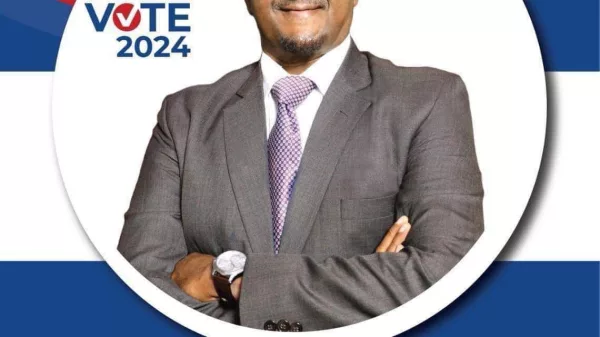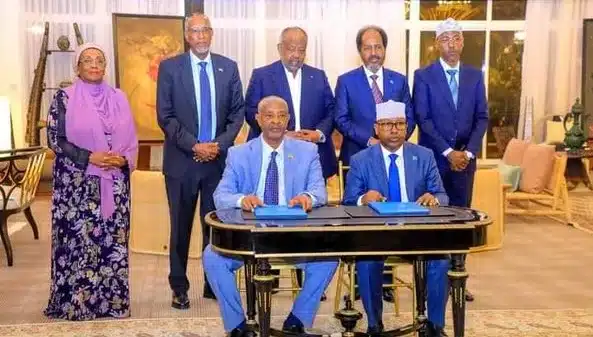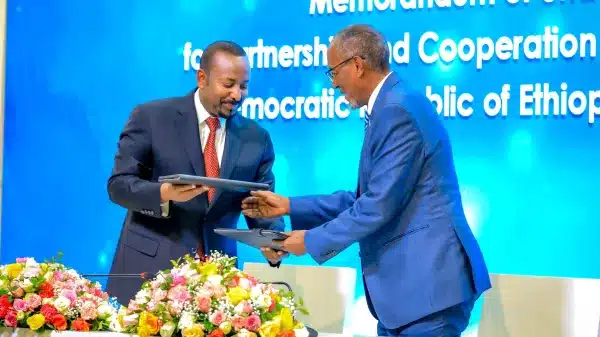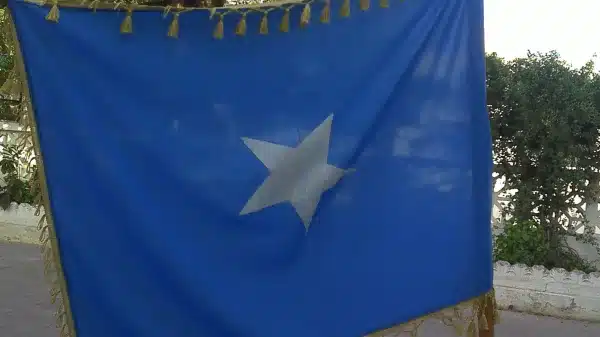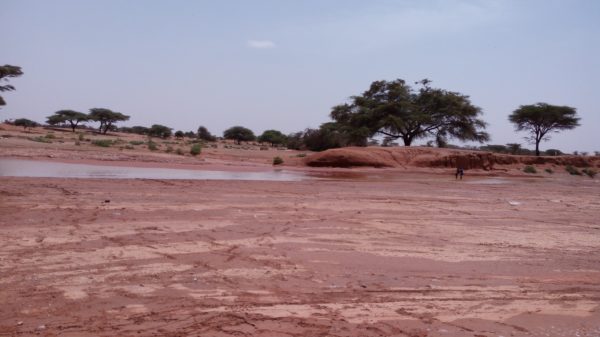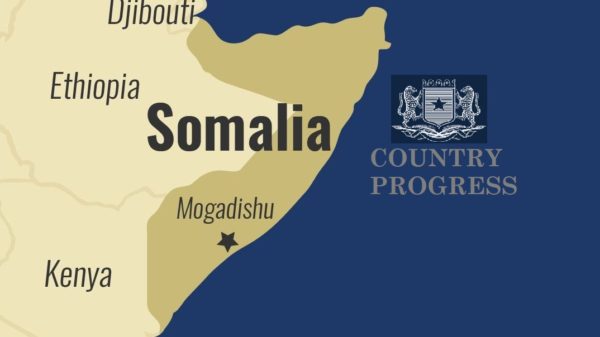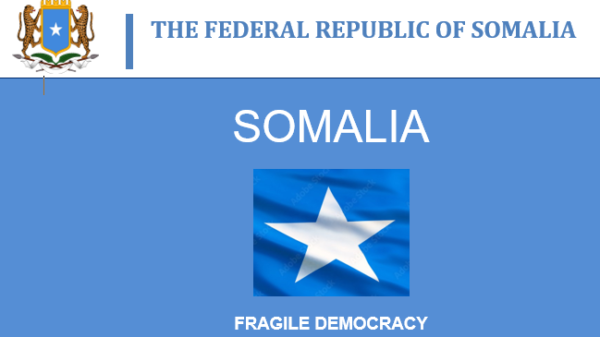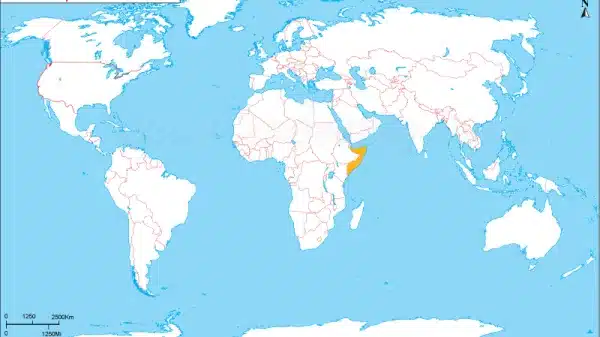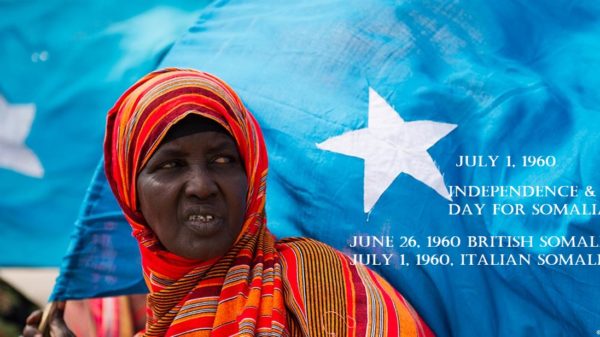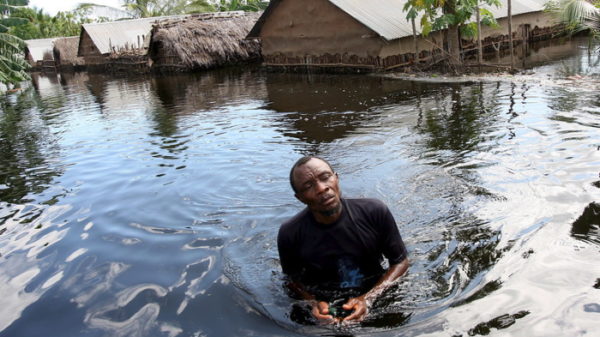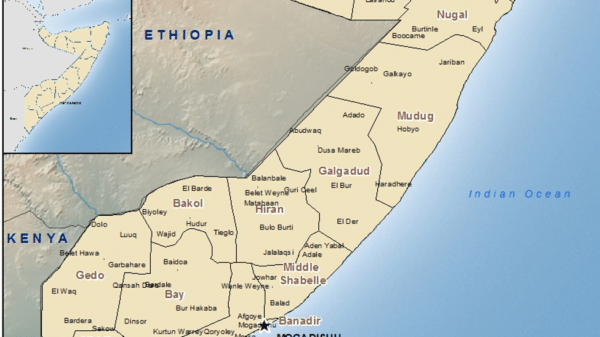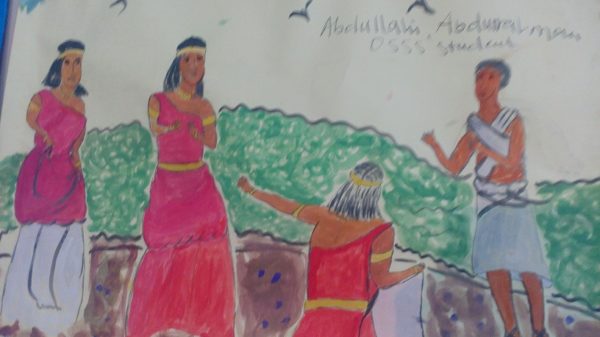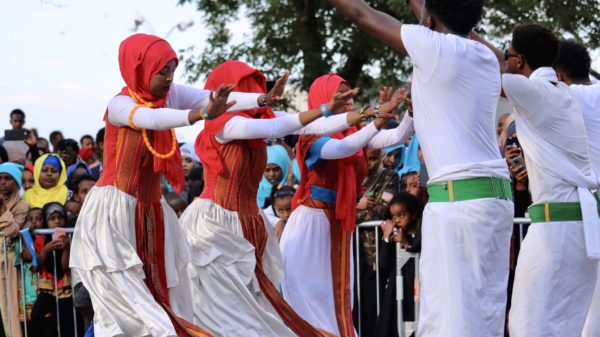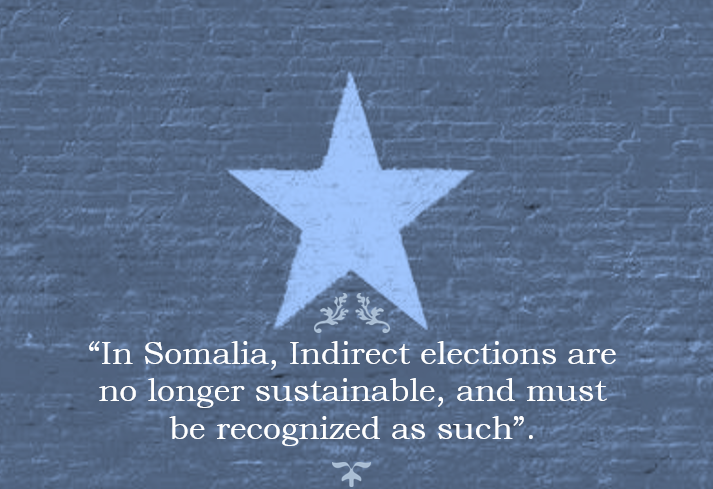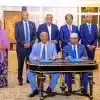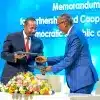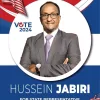On 15 May 2022, Mogadishu hosted Somalia’s most recent presidential election, which was conducted through an indirect process. The country had implemented a two-house parliament system in 2004, consisting of the House of the People as the Lower House and the Senate as the Upper House. As part of a new charter, the House of the People, comprising 275 members, was established with a power-sharing system based on 4.5 clan equality. This involved distributing parliamentary seats among the four major clans and allocating half a seat to minority groups.
Subsequently, in January 2017, the Senate was formed, comprising 54 members who were appointed based on regional representation. Each of Somalia’s 18 regions was granted three seats in the Senate. In its pursuit of a stable democracy, Somalia has organized multiple indirect presidential elections since 2004. These elections entail the selection of a president for a four-year term, with only members of the two houses eligible to cast their votes.
The sequence of indirect elections in Somalia over the years can be summarized as follows:
Established in the year 2000, the Transitional National Government of Somalia (TNG) came into being during the Arta Conference held in Arta, Djibouti. Taking place from August 20 to September 20, 2000, this conference had the primary objective of bringing stability and governance to Somalia, which had endured years of civil war. Another aim of the TNG was to facilitate the peace process by uniting the various factions and tribes within the country. Additionally, the TNG intended to pave the way for a more permanent government structure in the future. Notably, Abdikasim Salad Hassan assumed the presidency of the TNG in the same year, following the reconciliation conference’s conclusion on September 20, 2000.
In 2004, the Transitional Federal Government (TFG) election marked the beginning of a transitional government for Somalia. The signing of the Transitional Federal Charter on October 10, 2004, paved the way for Abdullahi Yusuf Ahmed to assume the presidency. By majority vote, Ahmed was elected by the Federal Parliament’s 275 members.
Moving on to 2009, the Djibouti Agreement was signed, extending the TFG’s mandate and instating a new parliament with an increased membership from 272 to 550. In the same year, Sheikh Sharif Sheikh Ahmed emerged as the newly elected president, following the election held on January 10.
In 2012, the transitional government’s tenure came to an end, leading to the formation of the Federal Government of Somalia (FGS). On September 10, 2012, the initial presidential election under the FGS occurred, resulting in the victory of Hassan Sheikh Mohamud. Mohamud assumed the presidency after securing the majority of votes from the Federal Parliament’s 275 members.
The year 2017 witnessed the second indirect presidential election under the FGS. On February 8, 2017, Mohamed Abdullahi Mohamed, commonly known as “Farmajo,” emerged as the elected president. The election process involved voting by both houses: the 275 members of the Federal Parliament along with the newly established 54 Senators.
Most recently, in 2022, the third indirect presidential election under the FGS took place. On May 15, Hassan Sheikh Mohamud was once again elected as the president. This election, much like previous ones, involved the participation of both the 275 members of the Federal Parliament and the 54 Senators in the voting process.
Due to political conflicts and anxieties regarding security, the final two presidential elections were postponed. The electoral procedure encountered heated allegations of misconduct and control, resulting in an extended period of indirect elections before the implementation and acceptance of the popular electoral system in Somalia. The utilization of parliamentarians rather than a direct vote to determine the president presents increasingly noticeable drawbacks, such as:
Lack of Direct Representation
The selection of parliament members in Somalia follows a clan equality-based system with a rating of 4.5. Meanwhile, the president is chosen by the parliament, without direct involvement from the citizens in the selection of both parliament members and the head of state. According to a study by Ken Menkhaus, a Professor of Political Science at Davidson College, USA, this particular election system in Somalia has resulted in what he refers to as the “Elite Bargain and Political Deals Project” in his Somali Case Study published in February 2018. This system has given rise to a political culture characterized by horse-trading, as the entire election process is heavily influenced by political bargaining and deals struck among regional leaders and parliament members. Consequently, compromises and trade-offs are made during the process, often at the expense of prioritizing the best candidate and the country’s best interests. This has led to a perceived lack of representation and engagement among the general Somali population.
The absence of cohesion and liability
Inability to be directly answerable to the public for their selection of the president has made it more difficult for members of parliament to be held accountable for their decisions, consequently granting leeway for the emergence of factions, polarization, and institutional impasses, as is observable in present-day Somalia. The presidential election being conducted through parliament has intensified factionalism and political polarization, with political parties and factions prioritizing their own interests over the greater good of the country. Moreover, certain interest groups or influential individuals hold sway over the voting decisions of parliament members, thereby compromising the integrity of the electoral process. In actuality, the Somali presidents elected via these indirect elections have not necessarily reflected the majority’s preference, ultimately resulting in a fractured nation and hindrance to national harmony.
Issues of perceived legitimacy and limited public engagement
Issues of limited public engagement and perceived legitimacy arise from the absence of direct elections. This situation leads to diminished interest and involvement of the public in the political process, causing citizens to feel detached from the decision-making procedures. Consequently, citizens are now questioning the legitimacy of the existing governance system. This skepticism primarily stems from the belief that the decision-making process has been influenced by political manipulation or external pressures, which aligns with the prevailing political culture in present-day Somalia. Moreover, the prevalence of a significant political divide within the parliament and between various branches of government exacerbates the problem, resulting in ongoing institutional gridlock. Notably, the controversy surrounding the last two presidential elections has instigated violence and caused delays and instability in the country.
Insufficient Allocation for Marginalized Opinions
The parliament’s method of appointing representatives to both houses and conducting presidential elections does not sufficiently reflect the perspectives and concerns of minority communities, particularly those who are more susceptible to societal challenges. Their presence within the legislative body is undeniably restricted. Moreover, given the government’s minimal or nonexistent efforts to implement inclusive initiatives that address their vulnerabilities, their lives remain largely unaffected.
The importance of comprehending a country’s political systems and historical contexts that influence the current indirect election processes in Somalia cannot be overstated. The extended civil war and political instability have played a significant role in shaping these processes. Since the collapse of the central government in 1991, Somalia has been plagued by ongoing conflicts and struggles in establishing a stable political system. Consequently, numerous attempts have been made to create a representative government using different electoral models and procedures. The design and implementation of elections in Somalia have been heavily influenced by the challenges posed by the ongoing conflict, clan divisions, and regional interests. In order to establish a functional and representative political system that balances the interests of various groups and regions, both international and national level efforts have been made, resulting in the development of the 4.5 clan equality-based power sharing system.
However, while there are advantages and reasons behind the adoption of this method of indirect parliamentary and presidential selection, it is important to acknowledge the numerous shortcomings within the specific context of Somalia. The effectiveness of this system depends on the overall political context and the quality of governance within the country. Indirect elections do offer certain advantages, with relative stability being the foremost benefit for Somalia after experiencing a prolonged civil war. It provides a degree of stability and governance, preventing the nation from becoming a failed state and instead positioning it as a fragile state. Additionally, indirect elections help minimize the influence of short-term populism and emotional voting. Representatives are less susceptible to populist influences and immediate public sentiment, resulting in less frequent shifts in public opinion. However, it is worth noting that while their focus may not always be on the long-term interests of the nation, this was exemplified during the last election where representatives voted out an incumbent president, who was considered a “populist influencer,” and elected his main competition, the former president.
Unfortunately, many of the universal advantages of indirect elections do not apply to Somalia due to the ineffectiveness of the system. The specific political context, cultural norms, and overall weak democratic framework in place have hindered the country from benefiting significantly from the protracted indirect election process. In general, indirect elections involve representatives being chosen to elect the national leader.
To successfully establish a new and efficient election procedure in Somalia, it is crucial to first comprehend the political environment and involve key stakeholders to address primary challenges and opportunities for electoral reform.
Simultaneously, fostering relationships with crucial stakeholders, such as Federal Member States (FMSs) or regional administrations, qualified political parties, civil society organizations, as well as federal and FMS level election commissions, is necessary to gain support and cooperation for the initiative. Considering the current circumstances of this delicate democracy, which already has an existing electoral system in place, it is of utmost importance.
Although the potential to implement direct elections already exists, there is a lack of political determination and leadership from key stakeholders. The National Independent Elections Commission (NIEC) legislation and its mandate were established in February 2015. The agency, along with its legal framework provisions for implementing direct election voting, has been in operation for the past seven years. According to the national election law, NIEC is solely responsible for overseeing all future elections throughout the electoral cycle. However, only two indirect elections have been conducted at the federal level, in February 2017 and May 2022 respectively, while regional governments carry out their own local elections without NIEC’s supervision. The agency’s ineffectiveness and failure can be attributed to several widely acknowledged reasons, among others:
- Insufficient support from a diverse and inclusive coalition, including political leaders, activists, academics, and citizens from various backgrounds and affiliations.
- Failure to prioritize transparency, accountability, consensus-building, and public awareness in the electoral process, in order to gain the public’s confidence and backing for election voting.
- Limited infrastructure, resources, and capability to effectively and securely carry out the direct election voting process.
- Inadequate support from the international community, organizations, and democratic countries with experience in election reform and direct voting.
Indirect elections in Somalia are no longer sustainable and must be recognized as such. The current political and security situation of the country is leading it towards a negative path, with the risk of relapsing into civil war or falling under the control of the Al-Shabaab terrorist organization, which already holds a significant amount of territory in Somalia. On June 30, 2023, The Armed Conflict Location & Event Data Project (ACLED) published a report stating that political turmoil is threatening the fight against al-Shabaab. The report highlights how political infighting has undermined the counter-insurgency campaign led by the Somali government, resulting in a rise in violence, including over 1,400 fatalities, between May 27 and June 23, 2023. Disorder in Beletweyne district triggered by political infighting has spread to other parts of the country.
Resolution 2520, adopted by the United Nations Security Council on 29 May 2020, urges the Somali authorities to implement additional political and technical measures to guarantee the conduct of elections based on the principle of one-person-one-vote by the end of 2020 or early 2021. It emphasizes the significance of the complete, equal, meaningful, and effective engagement of all Somalis in this process. The UNSC has laid out a timeline, and while the national initiatives for direct elections in Somalia are yet to be observed.
However, it is imperative to introduce a direct election voting process in Somalia’s delicate democracy. Although it is a complex and challenging task, it represents the only viable way forward. The active and comprehensive participation of the public in the voting process will contribute to strengthening democratic institutions and increasing citizen involvement in the political process. The commitment of the Somali people to democratic values is crucial for their progress, stability, and nationhood.
To initiate the direct election process, it is essential to assess and address the main issues that caused the failure of the national election commission or hindered the implementation of the election law itself. Gathering feedback from all stakeholders and making necessary improvements will enhance the effectiveness and integrity of the process.
Additionally, constitutional amendments or referendums with input and feedback from the citizens regarding the proposed election voting process might be necessary to authorize the implementation of direct elections in Somalia. It is crucial to keep in mind that implementing direct elections in Somalia, as a fragile democracy, is a substantial undertaking that requires collaboration, transparency, and commitment from all parties involved. Moreover, it should be a gradual process, with a willingness to learn from past experiences, which will be essential for its successful implementation.
Somalia, at the end of the day, needs to make a shift towards a democratic system that is founded on fairness. In order to do so, it should harness the power of nationalism, which is a shared value among its people. This will allow the country to move away from the influence of clans and towards a system of equal power sharing in politics. A crucial aspect of this transformation is ensuring that political representation is based on an accurate national census, as well as fair allocation of resources and sincere dialogue among the Somali population. It is important that Somalis themselves have the ability to shape their own future development and progress, and have a say in defining the structure of their government as well as the distribution of national resources. The need for a coordinated and unified approach to the nation-building process, led by Somalis, cannot be emphasized enough. Instead of relying solely on clan equality for political and security reforms, there should be an emphasis on building natural alliances within society. This shift in dynamics will allow for a redefinition of federalism, focusing not on clan boundaries, but on equitable and strategic economic and political compatibility.
By: Ahmed Adan
Ahmed Adan is a Strategic Communication Specialist. Since late 2012, he has been working in the public and humanitarian sectors in Somalia. He has held positions as the Communications Director in the Office of the Prime Minister, Somalia, and as the Federal Government Communications Coordinator through the Ministry of Information, Culture, and Tourism, FGS Somalia.

Author
-
Strategic Communication Specialist and Consultant, graduated from The Ohio State University with Strategic Communication major and Journalism. Follows the social and political changes of the wider East Africa region, with keen interest of the Somali news and issues, with over 12 years media and communication experience in the region.



